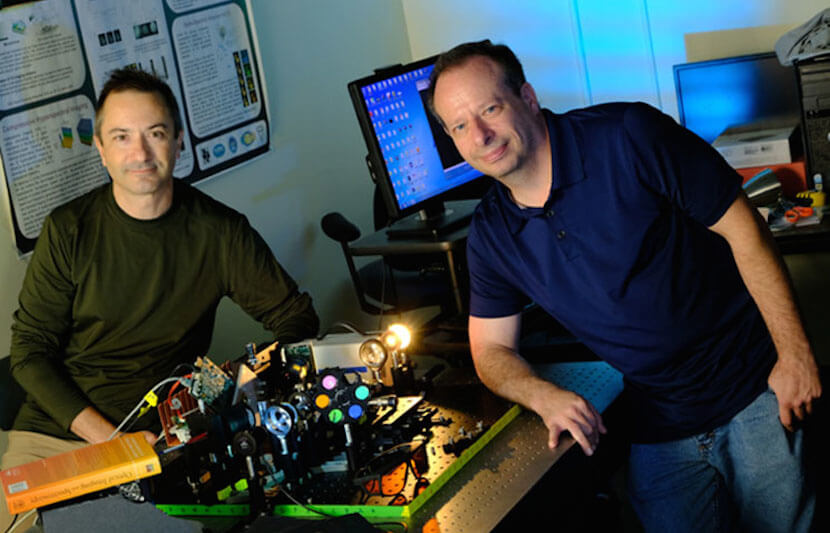Two Rice University researchers have developed a new ‘compressed sensing’ technology that will benefit patients who are required to undergo magnetic resonance imaging (MRI) for diagnosis of their medical conditions.
MRI is a noninvasive test that uses a powerful magnetic field, radio frequency pulses and a computer to produce detailed pictures of the internal body, including organs, soft tissues and bone.
MRI scans can be arduous, requiring patients to lie without moving a muscle for up to 45 minutes so as to prevent blurring of images. In some cases, patients are even required to hold their breath several times during the process.
But MRIs would be less of an ordeal with the “compressed sensing” technology created by the researchers — Richard Baraniuk, Rice’s Victor E. Cameron Professor of Electrical and Computer Engineering, and Kevin Kelly, a Rice associate professor of electrical and computer engineering — to help provide a solution for a clinical problem in the field of medical technology that revolved around reducing the lengthy time of MRI scans while still maintaining the best quality possible for a patient’s diagnoses.
This new technology requires less data to deliver the best quality diagnosis, thereby enabling a faster, more efficient process. This is chiefly due to the fact that doctors will be gleaning the information they need from far fewer data samples.
“MRI machines currently use mathematical technology developed in the 1930s, and scans can take up to 45 minutes and require patients to hold completely still during that time, something that is especially difficult for very sick or very young patients,” Baraniuk said in a statement. “This technology will be a game-changer for MRI scanners, especially when it comes to serving patients whose age or health prevents them from holding their breath or being completely still for extended periods of time. The technology will also benefit cardiac patients. Previously, low diagnostic quality prevented these patient subsets from realizing any benefit from cardiac MRI, but the technology enables the entire cardiac cycle to be recorded in real time with only one breath-hold.”
The technology has been licensed to German medical technology company Siemens Healthineers for use in cardiovascular imaging, which rolled out new MRI scanners using the “compressed sensing” technology last year and received approval for clinical testing in February.
These new MRI scanners can complete the scan of a beating heart in as few as 25 seconds, with patients breathing normally and holding their breath just once. In comparison, MRI scanners using current technology took four minutes or more to complete a scan of a beating heart with patients required to lie still during the process and hold their breath for seven to 12 times.
The researchers believe that the technology would make MRIs of the abdomen, which require “long, consecutive and exhausting breath-holds,” more available to patients who are currently excluded because they are either too young to comply with the arduous breath-hold requirement or have labored breathing.
The researchers also believe that their technology has other potential commercial use.
“We can expect to see compressive sensing applications expanding beyond medical imaging (e.g., MRI and CT) and into other domains where acquiring data is expensive in either hardware or time, including cameras for infrared and hyperspectral imaging as well as radar and sonar,” said Amy McCaig, senior media relations specialist at Rice. “Good progress has already been made in all of these areas; in some, commercial systems are just around the corner. Unlike digital cameras that see in the visible wavelengths, infrared camera systems are quite expensive and thus compressive imaging could greatly save on the cost of such systems.”
“It is great for us to see something go from basic research to real-world applications. In addition, this research field as a whole is constantly improving both the hardware implementations and reconstruction algorithms every day to further increase its potential utility.”



